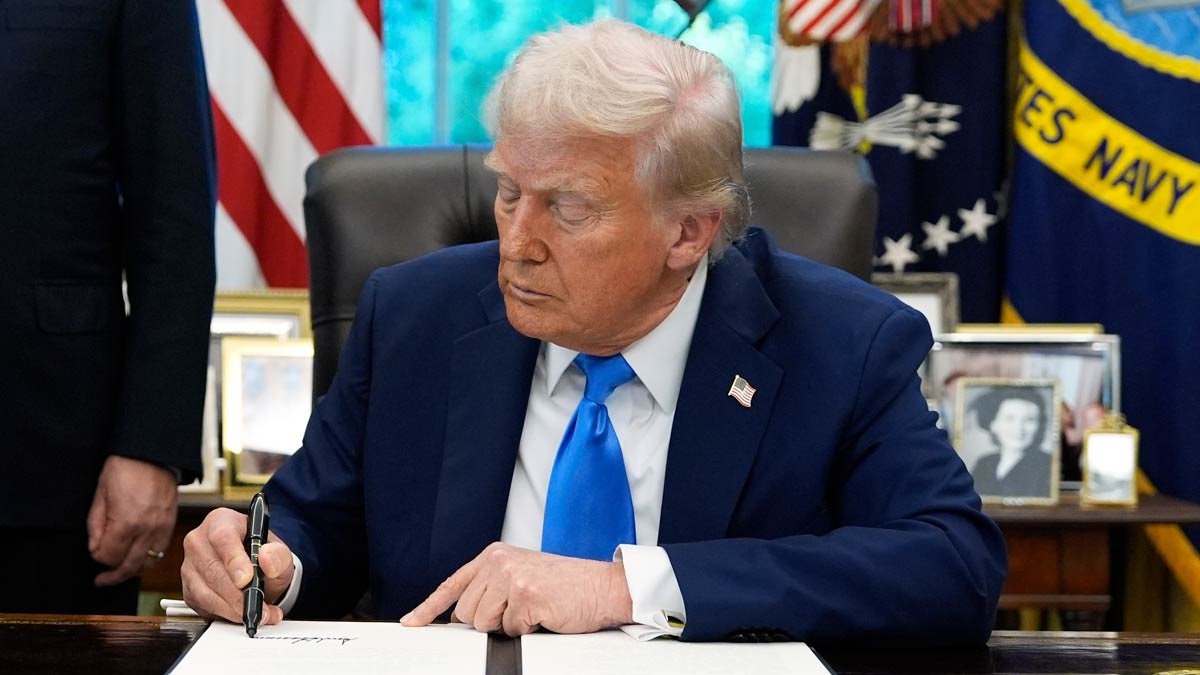Trump imposes USD 100,000 annual fee on H-1B visas; how will it impact Indian workers in US?
The move will force companies to be more selective about which positions warrant H-1B sponsorship
 By The Week News Desk
By The Week News Desk Updated: September 20, 2025 07:41 IST
President Donald Trump | AP
US President Donald Trump has signed a proclamation, increasing the fee for H1-B visas to a staggering USD 100,000 annually, a move that will alter how American companies hire skilled foreign workers.
The companies will have to pay this fee in addition to the existing vetting charges. However, the administration is still deciding whether to collect the full amount upfront or on an annual basis.
According to the White House officials, the move was aimed at ensuring that the people being brought into the country are "very highly skilled" and do not replace American workers.
“We need workers. We need workers. We need great workers, and this pretty much ensures that that's what's going to happen,” Trump said while signing the proclamation.
Trump’s Commerce Secretary Howard Lutnick termed the move a deliberate strategy to eliminate “lower-skilled training positions” while preserving opportunities for highly skilled workers.
"So the whole idea is, no more will these big tech companies or other big companies train foreign workers. They have to pay the government USD 100,000, then they have to pay the employee. So it's just not economic. If you're going to train somebody, you're going to train one of the recent graduates from one of the great universities across our land, train Americans. Stop bringing in people to take our jobs. That's the policy here,” Lutnick said.
How it affects India
Indian nationals receive the majority of H-1B approvals in the US. The new move could have an impact on whether they can continue to stay in the US if their companies decide not to pay the USD 100,000 fee annually now required to retain the visas.
The substantial cost will force companies to be more selective about which positions warrant H-1B sponsorship, reducing overall applications.
Trump’s decision is also likely to impact Indian IT services companies like Infosys, TCS, and Wipro, which have traditionally used H-1B visas to bring junior and mid-level engineers to the US for client projects and skills development.
 Shenyang Imperial Palace 沈阳故宫
Shenyang Imperial Palace 沈阳故宫 Shenyang Imperial Palace 沈阳故宫
Shenyang Imperial Palace 沈阳故宫 General
General Shenyang Imperial Palace 沈阳故宫
Shenyang Imperial Palace 沈阳故宫









